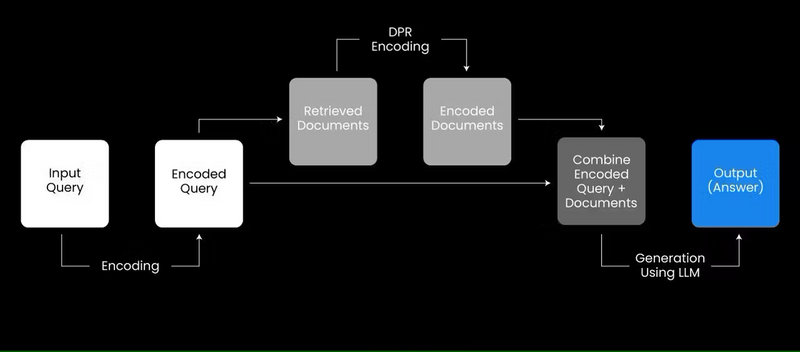Retrieval augmented generation has emerged as a powerful technique in natural language processing, combining the strengths of retrieval and generative models. This approach leverages pre-existing knowledge and external data sources to enhance the quality and relevance of generated content.
By retrieving relevant information from a vast corpus of data, retrieval-augmented generation systems aim to produce more coherent and contextually appropriate outputs. However, this innovative approach is not without its challenges.
In this blog, we guide you through the hurdles faced in retrieval-augmented generation and discuss potential solutions.
Retrieval Methods and Techniques
To understand the challenges of retrieval-augmented generation, it is important to first grasp the different retrieval methods and techniques employed.
These include traditional keyword-based search, semantic matching, and advanced neural network models like dense retrieval. Each method presents challenges, such as scalability, efficiency, and the need for intelligent query formulation.
Keyword-based Search
Keyword-based search is a traditional retrieval method that involves matching query terms with keywords present in the retrieval corpus. This method relies on the assumption that relevant information contains specific keywords or phrases.
However, keyword-based search has limitations when it comes to capturing the context and semantic meaning of the query. It may retrieve documents that contain the same keywords but lack the desired relevance, resulting in suboptimal retrieval quality.
Semantic Matching
Semantic matching techniques aim to overcome the limitations of keyword-based search by considering the semantic meaning and context of the query. These methods utilize natural language understanding and machine learning algorithms to capture the intent behind the query and match it with relevant documents.
Semantic matching can involve techniques like latent semantic indexing, word embeddings, or contextualized word representations.
Advanced Neural Network Models (e.g., Dense Retrieval)
Advanced neural network models have gained popularity in retrieval-augmented generation. Dense retrieval, a technique that utilizes dense vector representations for queries and documents, has shown promising results.
These models leverage pre-trained language models like BERT or transformers to capture the semantic meaning of the query and the retrieval corpus, enabling more effective retrieval.
Challenges of Retrieval Augmented Generation
Scalability and Efficiency
One of the primary challenges in retrieval-augmented generation is scalability. As the size of the retrieval corpus grows, efficiently searching and retrieving relevant information becomes increasingly complex.
Retrieval models must be able to handle large-scale datasets and perform retrieval in real-time to ensure the smooth functioning of the generation process. Developing scalable architectures and optimizing retrieval algorithms are crucial to overcoming this challenge.
Retrieval Quality and Relevance
The quality and relevance of retrieved information greatly impact the overall effectiveness of retrieval-augmented generation systems. Ensuring the retrieved data aligns with the desired context and maintains high semantic relevance is a significant challenge.
Noise, ambiguity, and incomplete information in the retrieval corpus can hinder the generation process, leading to outputs that lack coherence or fail to address the intended query.
Developing techniques to improve retrieval quality and relevance, such as query expansion and relevance feedback, is essential.
Semantic Coherence and Consistency
Achieving semantic coherence and consistency in the generated content is another major challenge. Maintaining a logical flow and consistent context becomes crucial when integrating retrieved information with the generative model.
Mismatches between the retrieved content and the generated output can result in disjointed or contradictory information. Techniques like content fusion, context-aware generation, and fine-tuning can help address this challenge and improve the overall output quality.
Bias and Fairness
Retrieval-augmented generation systems can inadvertently perpetuate biases present in the retrieval corpus. Biased or skewed data sources may lead to biased outputs, amplifying existing societal biases or introducing new ones.
Ensuring fairness and mitigating bias in retrieval sources is a critical challenge that needs to be addressed. Techniques such as debiasing methods, diverse retrieval strategies, and fairness-aware training can help tackle this challenge and promote equitable and unbiased generation.
Evaluation and Metrics
Evaluating retrieval-augmented generation systems poses unique challenges. Traditional metrics like perplexity or BLEU scores may not accurately capture the effectiveness of retrieval and integration.
Developing appropriate evaluation methodologies and metrics that consider both the quality of the generated content and the relevance of the retrieved information is essential.
Human evaluation, domain-specific evaluation benchmarks, and context-aware metrics are potential avenues for addressing this challenge.
Addressing the Challenges of RAG Models
Overcoming the challenges associated with retrieval methods and techniques is crucial for improving the retrieval quality in retrieval-augmented generation systems. Researchers are exploring several approaches:
- Combining multiple retrieval methods, such as keyword-based search and semantic matching, to leverage their strengths and mitigate their limitations.
- Techniques that expand or reformulate the query to capture more context and improve retrieval relevance.
- Designing neural network architectures that balance retrieval effectiveness and efficiency, enabling scalable and real-time retrieval.
- Incorporating user feedback to iteratively refine the retrieval process and enhance relevance.
Conclusion
Retrieval-augmented generation leverages the strengths of both retrieval and generative models to create content that is not only high in quality but also contextually appropriate. This approach is poised to revolutionize sectors like content generation, virtual assistance, and conversational AI by producing more accurate, informative, and engaging results.
As the field overcomes existing challenges, we anticipate substantial advancements and widespread adoption of retrieval-augmented generation. With the integration of vector database, these systems can enhance their efficiency and accuracy, further pushing the boundaries of what is achievable in these domains.



Top comments (0)